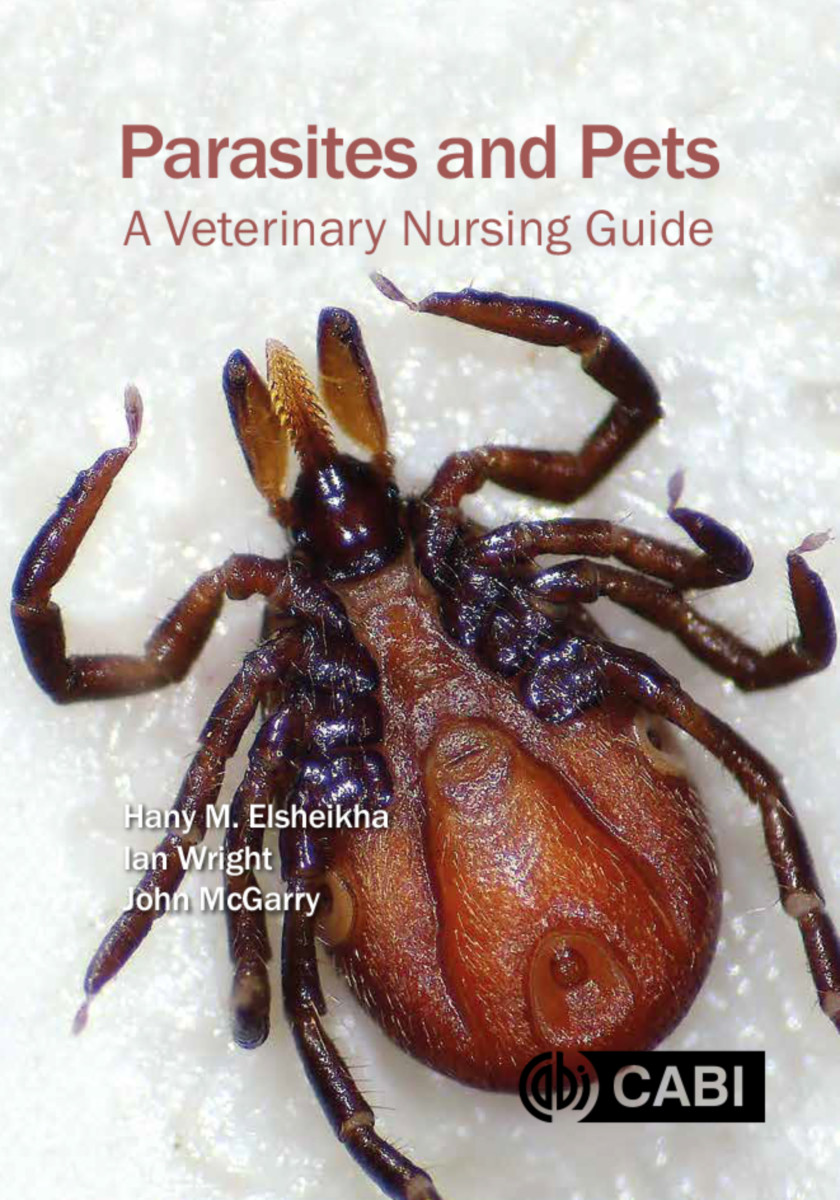Parasites and Pets
A Veterinary Nursing Guide
- Publisher
CABI - Published
9th March 2018 - ISBN 9781786394040
- Language English
- Pages 170 pp.
- Size 6.125" x 9.5"
- Images tables & color illus
- Request Exam Copy
This book is designed specifically for veterinary nurses and veterinary nursing students, and adopts an inquiry-based approach to assist veterinary nurses in gaining the essential knowledge and practical understanding necessary to excel in supporting veterinary surgeons to achieve an optimal management of parasitic diseases of dogs and cats.
Supported by figures and ending with learning outcomes, each chapter includes a number of questions and answers about a major group of parasites. Readers can also identify their own abilities and areas for development by completing the end-of-chapter self-assessment questions, answers to which can be found at the back of the book. The questions are designed to encourage veterinary nurses to question their practice, rationales, and the evidence base of the parasitology care delivery they provide to the patients. By completing all chapters and associated exercises within this book, the readers will gain the essential parasitology knowledge and professional skills needed for parasitology practice.
1: Introduction to Parasitology
2: Parasites of the Gastrointestinal System
3: Parasites of the Respiratory System
4: Parasites of the Cardiovascular System
5: Parasites of the Skin and Muscles
6: Parasites of the Eye and Nervous System
7: Parasites of the Urogenital System
8: Key Skills for the Veterinary Nurse in Diagnostic Parasitology
9: Parasite Control Clinics
10: Parasite Control and Pet Travel
Hany M. Elsheikha
Hany Elsheikha is an Associate Professor of Veterinary Parasitology at the School of Veterinary Medicine and Science, University of Nottingham. He is the author of more than 250 research and professional articles on parasite pathobiology and control.
Ian Wright
Ian Wright is a practicing veterinary surgeon and co-owner of the Mount Veterinary Practice in Fleetwood. He has a master's degree in Veterinary Parasitology, is head of the European Scientific Counsel of Companion Animal Parasites (ESCCAP) UK & Ireland and guideline director for ESCCAP Europe. Ian is regularly published in peer review journals, an editorial board member for the Companion Animal Journal as well as peer reviewer for journals such as JSAP, Companion Animal and Veterinary Parasitology. He continues to carry out research in practice including work on intestinal nematodes and tick borne diseases.
John W. McGarry
John McGarry is the author of some 60 publications, he has more recent interests in parasitic lungworms of companion animals, zoonotic helminths of wildlife and in forensic entomology, a pathology-related veterinary specialism unique to the Liverpool School of Veterinary Science.


